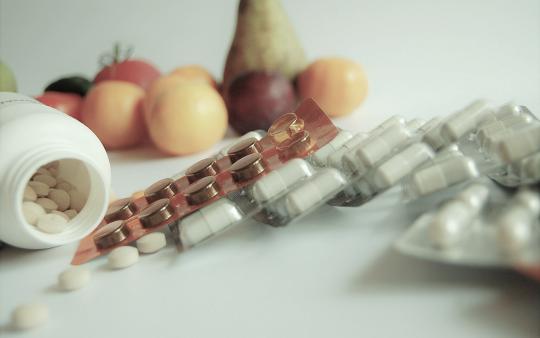Pregnancy is such an exciting time, but it often comes with the worry that you’re not getting the nutrients you need to nourish both your growing baby and yourself. While consuming a high quality, whole food diet is a great place to start, you may also want to consider adding supplements to enrich your nutritional intake. Here are some of my favourites that support both of you!
Calcium
Calcium is essential for healthy teeth and bones, and pregnant women need double! It may be hard to get the daily required calcium amounts from food alone, so a supplement is an especially good idea.
Dosage:1200 mg daily. Look for citrate or hydroxyapatite form.
Food sources: Dairy products, dark green vegetables, almonds, black strap molasses, tahini, chia seeds, tofu, and seaweeds.
DHA
DHA (docosahexaenoic acid), an omega-3 essential fatty acid, is important for the developing brain, eyes, and heart of a fetus. Deficiency in omega-3 has been identified as a contributing factor in mood disorders like post-partum depression, making fish oils incredibly beneficial for mothers’ post-delivery mental health. Higher levels of DHA in mother’s milk correlate with better scores on the Edinburgh Postnatal Depression Scale (EPDS) and Hamilton Rating Scale for Depression (HRSD).
Dosage: 800 mg daily.
Food sources: Salmon, mackerel, anchovies, sardines, herring, walnuts, eggs, and flaxseeds.
Folate
Folate is a B vitamin that has been extensively studied for reducing the risk of spinal cord defects in pregnancy and has been shown to support a healthy placenta. It’s recommended that all women of childbearing years take one.
Dosage: 1 mg daily of biologically active form 5-MTHF.
Food sources: Oranges, strawberries, green leafy vegetables, spinach, beets, broccoli, cauliflower, avocado, fortified cereals, peas, pasta, beans, and nuts.
Iron
Iron is needed to support healthy hemoglobin production during pregnancy as the increase in blood makes pregnant women especially susceptible to anemia.
Dosage: 30 mg daily. Look for iron chelates or bisglycinates.
Food sources: Beef, pork, dried beans, spinach, dried fruits, wheat germ, iron-fortified oatmeal or grains.
Vitamin D
Vitamin D has been shown to support the immune system and bone health, prevent pre-eclampsia, and reduce the risk of autoimmune diseases for the baby later in life.
Dosage: 1000 IU daily.
Food sources: Direct sun exposure, egg yolk, salmon, cod liver oil, and fortified dairy.
Probiotics
Probiotics, the beneficial bacteria that live in our gut, are critical, especially during pregnancy. Having a healthy gut culture has been shown to reduce yeast infections, support mood, and reduce pediatric allergies and eczema. During the birth process, babies naturally culture their beneficial gut bacteria by passing through the birth canal, which is rich in these microorganisms.
Taking a probiotic supplement while pregnant and nursing supports your microbiome so that you can continue to pass that good bacteria on to your little one, encouraging your baby's own microbiome to thrive. It’s important to note that this effortless transfer doesn’t happen in the same way with c-section deliveries, so a supplement will often be recommended in this case. Probiotics can also help the mother avoid illness and constipation during pregnancy, and might reduce the risk of Group B strep.
Food sources: Fermented foods like kefir and yogurt, kombucha, miso, kimchi and sauerkraut, and—what all pregnant women want—pickles!
Prenatal vitamins
Prenatal multivitamins are a great way to give your baby, and your body, adequate nutrition during your pregnancy and helps to bridge any gaps that exist. Make sure the multivitamin contains folate, iron in the form of easy-to-digest bisglycinate, B12 in the methylcobalamin form, and calcium citrate. Pick a high-quality vitamin without any added sweeteners, additives or preservatives.
Red raspberry leaf tea
Red raspberry leaf tea is widely known as a uterine tonic. It contains an alkaloid called fragine, which tonifies and strengthens the uterus muscles and pelvic region, aiding in a quicker and more efficient labour. Rich in vitamins C and E, calcium, iron, and potassium.
Dosage: From the third trimester on drink one cup of steeped tea twice daily.
Eating well and taking supplements that best support your unique nutritional profile are fantastic ways to ensure you’re providing your growing baby with the vitamins and minerals they need to thrive! As always, consult with your health care provider before starting any supplement regime.









